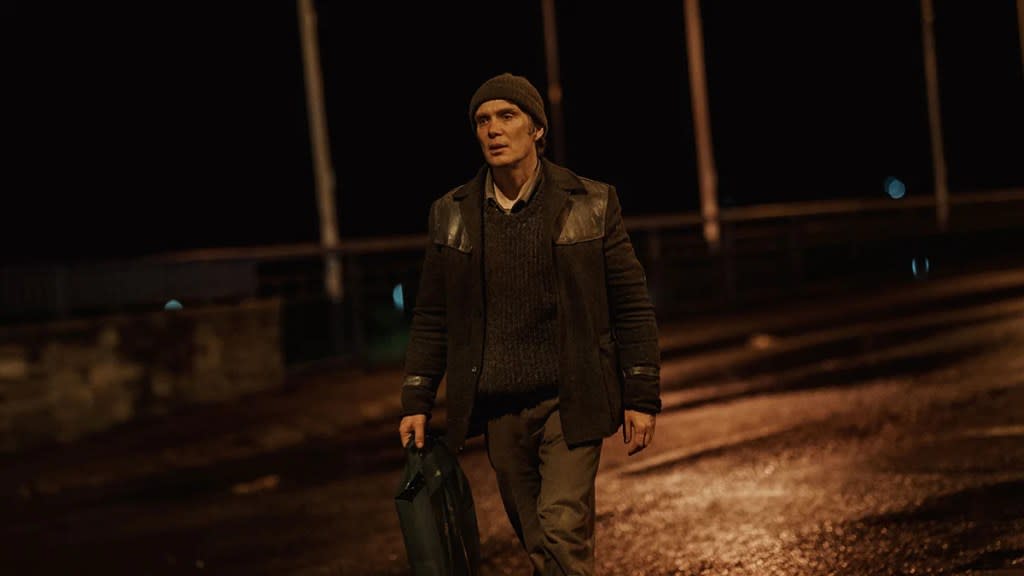‘Small Things Like This’ Review: Cillian Murphy Anchors Melancholic Tale of Yuletide Loneliness

It is rather ironic, given the Berlin Film Festival’s geographic and temperamental distance from the long grind of awards season, that this year’s opener should call to mind several titles fated to ride that circuit another four weeks once the Teutonic showcase comes to a close.
But then, the glove certainly fits, as director Tim Mielants’ “Small Things Like These” explores many of the same moral questions of “Zone of Interest” while neatly synthesizing a competitive best actor race – offering a melancholy tale of yuletide loneliness led, wouldn’t you know it, by a haunted Cillian Murphy.
An impressionistic morality play about a good man wrestling with his own complicity in sin, “Small Things Like These” could also indirectly play into the logic of the modern Oscar campaign, that PR scheme to emphasize career narratives, setting standalone performances against wider questions of an actor’s past, present and future. As luck would go, the Berlin opener does just that, lending the Irish star a self-defining passion project — born of two decades of collaboration and rising professional clout — that he may hold before the spotlight now brightly upon him.
Indeed, “Small Things Like These” is a rich marker when considering Murphy’s career in a more holistic way. The actor shepherded the project as both star and producer, handpicking a creative team that includes the screenwriter behind his career breakthrough “Disco Pigs” and the director of “Peaky Blinders,” and had apparently pitched the project while on the set of “Oppenheimer,” landing co-star Matt Damon as a co-producing partner — but none of those metatextual bits of trivia would mean a whit were the film a dud. As luck would have it once anew, “Small Things Like Things” is a modest gem.
Murphy stars as Bill Furlong, a coal man and – more importantly – a good man, beloved by his family and working-class community. Despite the affection of his five daughters and the attention of his more practical-minded wife (Eileen Jones, a stage partner in the 1996 play “Disco Pigs” that launched both actors’ careers), the doleful Bill has never shook the blues that arrived with his early orphaning. And so he spends the days leading up to Christmas 1985 walking the streets of his conservative Irish town, noticing the orphans and outcasts with a more acute eye than most, and, in turn, reflecting on their pain.
Though adapted from Claire Keegan’s acclaimed novel, the film is a more impressionistic affair, with a first half that accents mood and visual texture over narrative bustle. We meander alongside the lead, while flashbacks to Bill’s unhappy childhood don’t always announce themselves as such, with initial jolts of confusion quickly offset by the elegance of director Tim Mielants and cinematographer Frank van den Eeden’s (“Close”) compositions. Before we learn the name of this young woman crying behind a fine-mesh screen we admire the elegant change-in-focus that traces the tear running down her cheek.
And before screenwriter Enda Walsh introduces a moral challenge anchored in the specifics of 20th-century Ireland but redolent of many very contemporary heartbreaks, the film takes commensurate time to recreate the headspace and emotional experience of an introvert with a rich inner life. As taciturn as he is empathetic, as aloof as he is observant, the character makes fine use of Murphy’s unique screen presence.
More perceptive than most – or, at least, less able to look away – Bill acts as a conduit for the darkness on the edge of the frame. If at first the character’s downcast mien stands in surprising contrast to his domestic good-fortune we come to better understand his stubborn malaise with the discovery of a pregnant girl, left to suffer in a coal shack behind the county church.
If the young Sarah (Zara Devlin) once had a family and home she now falls under the Church’s vindictive eye, living in a Magdalene Laundry meant to keep such “fallen women” out of sight and mind. The fact that this penitentiary happens to share a thin wall with the county’s very best school – and thus the Furlong girls’ best chance at upward mobility – is a fact Bill’s wife Eileen finds easy to elide. Same goes for pretty much everyone else in town – that is, everyone except Bill.
In keeping with the film’s impressionistic point-of-view, Bill returns the girl to a covert convent that resembles nothing less than the gates of hell. The uncanny interiors sprawl out in unfamiliar directions, all lit blood red with a flaming glow. And there, at the end of this march, sits Lucifer herself: Sister Mary (Emily Watson). Emerging from the shadows at the film’s halfway mark, the head nun makes a compelling case when negotiating Bill’s moral surrender. “Look away,” she implies with a diplomat’s cunning. “Leave things to their right and proper order and you, too, can prosper.”
It helps that the Church holds all the cards and all the cash to boot. It also helps that the path of least resistance means adhering to a socially reified authority to the immediate and lasting benefit of Bill’s livelihood and kin. As the pensive film untangles these questions related to a very specific milieu, the quiet register encourages our own reflections on the very moral concerns time and circumstance have made unavoidable in the present day each and every day.
The post ‘Small Things Like This’ Review: Cillian Murphy Anchors Melancholic Tale of Yuletide Loneliness appeared first on TheWrap.


